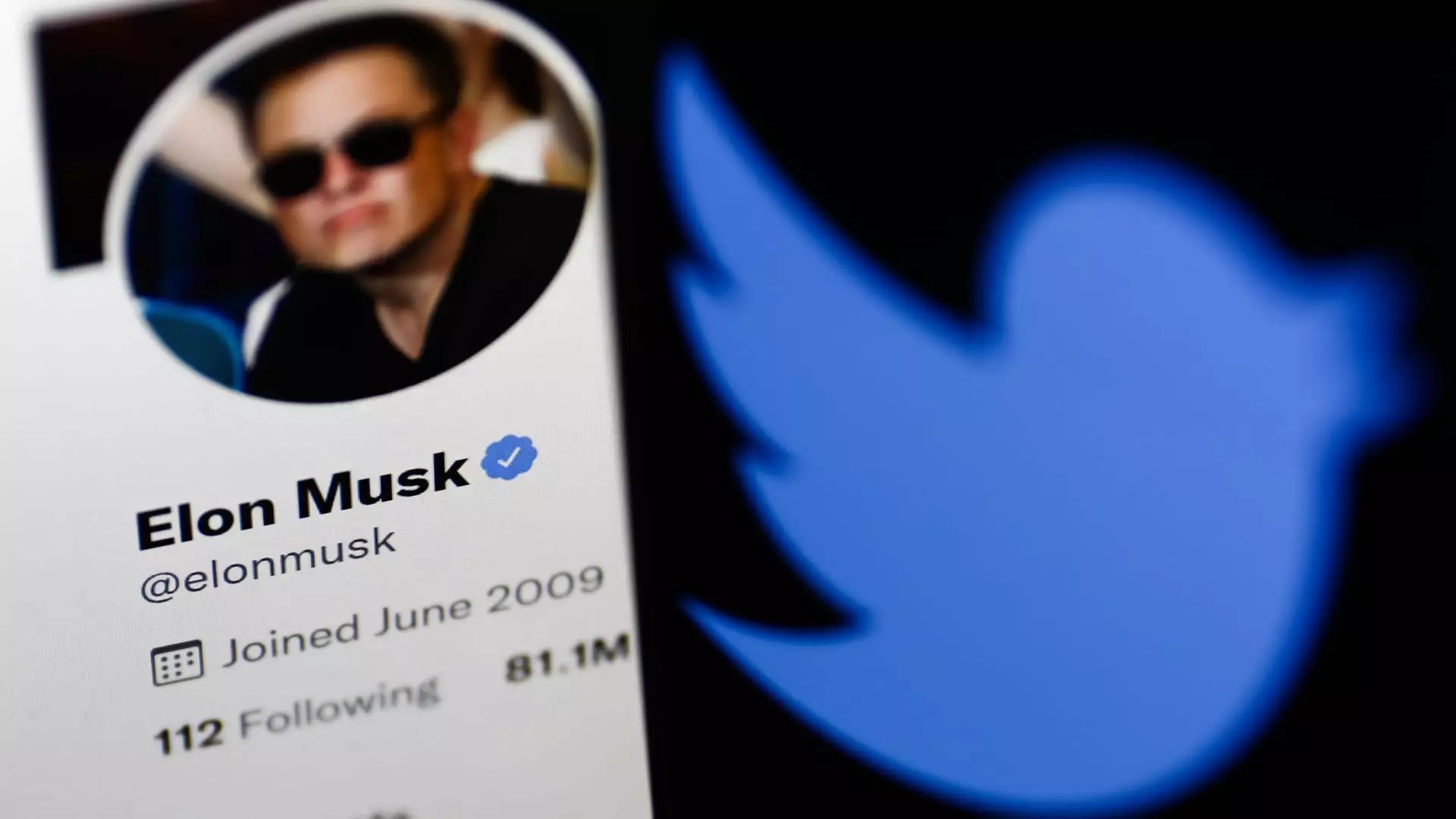Elon Musk, a name that resonates with innovation and audacity, is now embroiled in a legal quagmire following alleged securities violations surrounding his acquisition of Twitter shares. The proposed class-action lawsuit, Rasella v. Musk, asserts that Musk’s failure to disclose his stock purchases in a timely manner misled investors, resulting in significant financial losses. This situation starkly implies that for all his genius, Musk’s dexterity in navigating the financial landscape does not exempt him from the need for transparency. When a billionaire like Musk is implicated in questionable financial practices, it raises larger concerns about accountability in the tech sector.
The crux of the issue lies in Musk’s alleged “artificially deflated” timing of disclosures. When market signals are manipulated—intentionally or not—the results can be devastating for average investors. In a world that competes for investor trust, Musk’s actions come as a bitter pill to swallow, showcasing a potential double standard where influential figures operate in haphazard ways without real consequence. Is this an acceptable norm, or does it reveal a dangerous trend where the elite can play by their own sets of rules?
The Implications for Shareholder Rights
What’s particularly troubling about this case is its implications for shareholder rights. Investors are not just gambling; they place trust in corporate governance and fair market practices. Musk’s alleged misrepresentation effectively distorts that trust—a bedrock principle that should be upheld in any financial market. The audacity to mislead, even indirectly, shakes the very foundation on which our capitalist structure stands. It raises the question: if those who hold immense power can exploit loopholes, what recourse do the common investors have?
The Oklahoma Firefighters Pension and Retirement System, a plaintiff in this suit, represents a broader community that depends on investments for their futures. The spotlight on such cases is essential; it’s a clarion call for stronger regulations and a re-evaluation of existing frameworks that protect investors. When the stakes are high, so too should be the responsibilities of those at the helm.
The Legal and Ethical Quagmire
As Judge Andrew L. Carter pointed out, the timing of Musk’s disclosures, particularly coupled with the misleading nature of his tweets, prompts serious ethical questions. On March 26, 2022, Musk tweeted about contemplating a buyout of another social network, leaving the public in the dark regarding his substantial interest in Twitter. Such an inconsistency can be perceived as a manipulative tactic rather than an innocent miscommunication—a troubling tactic for someone who has acquired the stature of a public figure.
This situation is just the tip of the iceberg. Musk’s aggressive style and audacious actions often overshadow serious ethical scruples. When market leaders like Musk engage in dubious practices, it undermines market integrity and fosters skepticism among investors. This case could set a precedent—perhaps it’s time the courts scrutinize the actions of influential figures more closely and hold them accountable.
Cultural Impact Beyond the Courtroom
The ramifications of this lawsuit extend beyond legal boundaries; they seep into the cultural fabric of our society. Musk’s influence is extensive—he is not just a tech entrepreneur but a cultural icon whose words and actions shape public opinion. The normalization of financial misdeeds at his level sends a detrimental message to aspiring entrepreneurs and the general public. It asserts that financial transparency and ethical dealings are secondary to personal ambition and wealth accumulation.
This case highlights a crucial crossroads in the corporate landscape. The notion of holding even the most powerful accountable is not just a legal necessity but a moral imperative. In an era where social responsibility and ethical governance are critical, Musk’s actions challenge the narrative of the “disruptor” who defies norms. If those norms are rooted in honesty and fairness, then perhaps they are worth preserving, especially in the tech industry.
It’s fascinating to observe how this lawsuit unfolds, particularly with someone like Musk at the center. His ability to charm and captivate audiences may not absolve him from responsibility. Investors and average citizens alike must navigate this complex landscape with caution—because when the giants trip, it’s often the little people who pay the price. As public sentiment continues to shift, will we demand more from our leaders, or will we continue to enable a culture of impunity? Only time will tell.


Leave a Reply